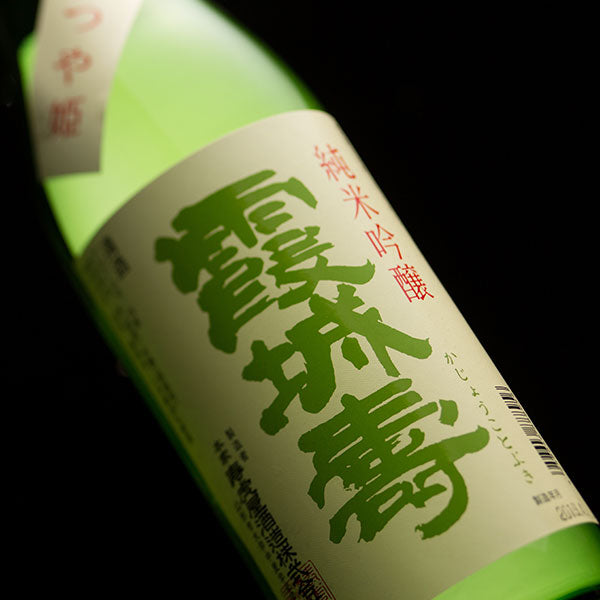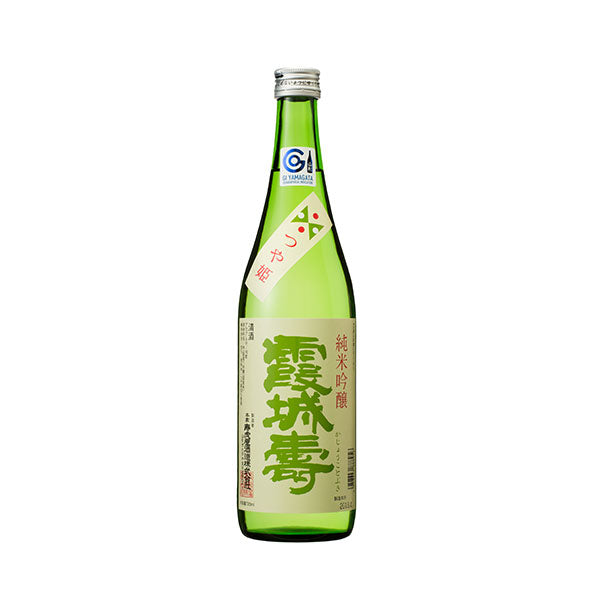-
 >
>
- Product list >
- Kajokotobuki Tsuyahime Junmai-ginjo (720ml)
Kajokotobuki Tsuyahime Junmai-ginjo (720ml)
詳しく見る
- *All prices shown are the product prices from the Japanpage:.
- *Product price can be shown in multiple currencies as reference values.
- *Payment should be made in Japanese yen.
- *After filling in delivery address, grand total (product price + shipping cost (packing + shipping + insurance) +tariffs & taxes) will be shown on the shipping cart page.
- *All prices shown are the product prices from the Japanpage:.
- *Product price can be shown in multiple currencies as reference values.
- *Payment should be made in Japanese yen.
- *After filling in delivery address, grand total (product price + shipping cost (packing + shipping + insurance) +tariffs & taxes) will be shown on the shipping cart page.
"Kajokotobuki Tsuyahime Junmai-ginjo" is a type of sake carefully brewed using all 100% of "Tsuyahime", a variety of rice from Yamagata with a Special A-rated (the highest rank) flavor; Yamagata yeast; and "Zaou's Melted Snow," a type of spring water overflowing with the power of nature. Our technological research carried out continuously over the past 300 years has enabled us to understand the properties of rice, and we used this to create delicious sake from delicious rice. This inventive sake, made with a rice variety used for food rather than a traditional sake variety, has a gentle ginjo flavor, a perfect balance between sweet and sour, and an ever so slightly sweet taste. It can be enjoyed cold or hot.
Pairing food proposed from Vendor
Meuniere, oden, pot-au-feu, raw oysters, cheese
About "Kajokotobuki"
The name "Kajokotobuki" is a combination of the common name for Yamagata Castle, "Kasumigajo" with "kotobuki" (congratulations). Japanese sake made from high-quality rice and the soft water of Mt. Zao's underground springs (water formed when snow on Mt. Zao melts). With pride in our 300-year history as a traditional sake brewer, this brewery also use modern technology to product the ultimate beverage for your enjoyment.
Recommended temperature
- Atsukan (50 - 55℃)
- Jokan (45 - 50℃)
- Nurukan (30 - 40℃)
- Room temperature (15 - 20℃)
- Hanabie (10℃)
- Yukibie (5℃)
Type


Tag
Appearance
-
Clarity
Transparency
Hazy
-
Colour
Colorless
Dark brown
-
Intensity
Water
Deep
Nose characteristics
-
Intensity
Low
Strong
Taste characteristics
-
Light / Body
Light
Body
-
Sweet / Dry
Sweet
Dry
-
Simple / Complexity
Simple
Complexity
-
Acidity
Low
High
-
Umami
Low
High
-
Finish
Low finish
Long finish
Aroma and flavor
Apple
Detailed information
| Volume | 720ml |
|---|---|
| Size (L W H) | 7.5 x 7.5 x 30.0 cm |
| Weight | 1.2kg |
| Ingredients | Rice, Rice koji, Water |
| Region | Yamagata |
| Alcohol content | 16%vol. |
|
Sake Meter Value
|
-3 |
|
Acid level
|
1.6 |
|
Polishing ratio
|
55% |









